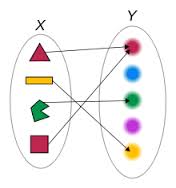function
英 [ˈfʌŋk.ʃən]
美 [ˈfʌŋk.ʃən]
- n. 功能;[数] 函数;职责;盛大的集会
- vi. 运行;活动;行使职责
使用频率:

记忆方法
记忆“function”的方法是将其分解成“fun”和“tion”。想象“fun”是一个欢乐的活动,而“tion”是动作的结尾,将两者结合,可以记住“function”指的是某个事物或机器的正常工作,就像一个欢乐的“fun”活动在发挥它的作用一样。
以上内容由AI生成, 仅供参考和借鉴
中文词源
function 功能
来自拉丁语functio, 履行,执行。
英语词源
- function
-
function: [16] The ultimate source of function is the Latin verb fungī ‘perform, discharge’, which may be related to Sanskrit bhunkte ‘he enjoys’. From its past participle, functus, was formed the abstract noun functiō ‘performance, activity’, which passed into English via Old French fonction. Other English derivatives of fungī include defunct and perfunctory [16], etymologically ‘done only to discharge an obligation’.
=> defunct, perfunctory - function (n.)
- 1530s, "one's proper work or purpose; power of acting in a specific proper way," from Middle French fonction (16c.) and directly from Latin functionem (nominative functio) "a performance, an execution," noun of action from funct-, past participle stem of fungi "perform, execute, discharge," from PIE root *bheug- (2) "to use, enjoy" (see brook (v.)). Meaning "official ceremony" is from 1630s, originally in church use. Use in mathematics probably was begun by Leibnitz (1692). In reference to computer operations, 1947.
- function (v.)
- 1844, "perform a function" (intransitive), from function (n.). Related: Functioned; functioning.
权威例句
- 1. His function is vital to the accomplishment of the agency's mission.
- 要完成该机构的使命,他的作用至关重要。
- 2. They were decked out in tracksuits, seemingly to dissimulate their true function.
- 他们都穿着田径服,似乎想掩饰他们的真实职能。
- 3. A complex engine has many separate components, each performing a different function.
- 一个复杂发动机有很多独立零部件,每个零部件具有不同作用。
- 4. He had been invited to grace a function at the evening college.
- 他应邀为这所夜校的活动捧场。
- 5. The other fundamental consideration in the conception of a plan is function.
- 在构思设计图时要考虑的另一个基本因素是功能。
